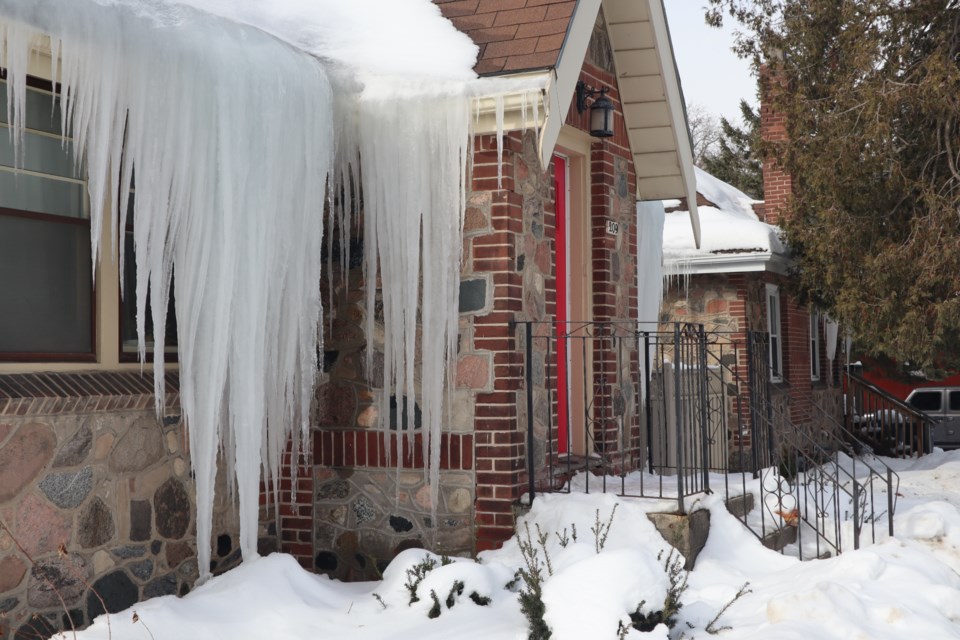With extreme winter conditions consuming the last few weeks dangerous conditions like accumulating icicles shouldn’t be ignored especially when the onus is on property owners and tenants if someone were to get injured.
Shovelling snow and scattering salt can help to make sure people don’t slip on the way to your door. Preventive measures should also be done when it comes to hanging icicles. The onus is on the property owner or tenant when it comes to injuries from falling ice.
During winter weather people will say ‘it’s an act of God’ and it’s not their fault, said Anne Marie Thomas, director of consumer and industry relations at the Insurance Bureau of Canada. In Ontario, an act of God isn’t an insured peril, she said.
“Icicles hanging are not dissimilar in that someone can slip on the ice. An icicle can fall and hurt somebody. It can be quite dangerous,” said Thomas.
Tenants who lease commercial properties and tenants that rent residential properties should check their lease agreements to see who is responsible for clearing snow and ice. It can be the tenant or the property owner.
If an Amazon delivery driver, letter carrier or a friend comes onto your property and slips on ice on the walkway or an icicle falls and hits them, you could be sued.
“I can pretty much guarantee that if someone was hurt by an icicle, they're going to sue the tenant and the building owner,” said Thomas. This responsibility falls on business owners, homeowners, property owners, landlords and tenants. The liability section of a business, home, tenant or condo insurance policy pays for the cost to defend lawsuits, she said. People need to check if its covered in their policy first.
If there are property owners or tenants who are unsure what their insurance covers when it comes to situations like these they can contact the Insurance Bureau of Canada for information.
Thomas’ advice is to take a look around your property to see if icicles are accumulating and knock them down in a safe way to prevent larger icicles from forming.
If you live in an older home, check your insulation. If heat escapes from the roof then melting snow runs off it and it can freeze, creating icicles. The best case scenario is preventing the icicles before they start, she said.
She also suggests watching for icicles when there is an increase in temperature outside and to put a sign outside telling people to watch for falling ice or snow. “Anything you can do to give people a heads up so they can maybe take a little bit of care and don't hurt themselves, is always good,” said Thomas.
